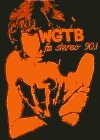
Washington
City Paper
Cover Story:
Radio Free
Georgetown
by Guy Raz
January 29
February 4
1999
 |
|
RADIO FREE GEORGETOWN
With Nixon running the show in the White House, rare were the days devoid of outrage among the WGTB news collective. In at least one instance, a news staffer simply made the news up: On an afternoon in the fall of 1973, a prominent and outspoken newscaster, John Walsh, announced that the U.S. had bombed Libya. Nixon, he read, had ordered the attack. But the attack had never happened. Walsh, whose nom de guerre was "Abalone," had completely fabricated the news flash. Sleeman was furious, but Walsh replied: "If Nixon could have his way, he would have done it."
Walsh, who died several years ago of cancer, is remembered by his brothers- and sisters-in-arms at WGTB as the news collective's dominant voice. He was deeply passionate about Native American affairs and made sure they were featured regularly in newscasts. It was he, as Abalone, who managed to exploit contacts inside the Oglala Sioux compound at Wounded Knee, S.D., and broadcast some of the earliest and most insightful accounts of the 1973 standoff between the Sioux and federal marshals. At the time, members of the American Indian Movement (AIM) claimed the small town for the "Independent Oglala Sioux Nation." The Sioux tribesmen refused to cooperate with the mainstream press, and although the compound was sealed, some recordings of the siege were smuggled out, ending up on the airwaves of WGTB.
"We actually scooped the mainstream press," says Sleeman gleefully. There was no question among the news collective about who was in the right; the tone of the newscasts was decidedly pro-Sioux.
Abalone's dogmatic political philosophy, however, made him a stubborn radio presenter. "He would not tone down the rhetoric," remembers Sleeman. If the news collective represented the peripheral left of the station staff, Abalone and Pietrafesa were off the radar screen. They were influenced heavily by the writings of Mao and Lenin. Because they viewed the mainstream press as an organ of the Establishment, they saw it as their mission to disseminate missives for the extreme left.
One Friday evening in early 1974, as the newscast began, Abalone leaned into the microphone and announced, "This is the alternative news for Friday. Fuck Friday." He stood up and walked out of the studio. Sleeman, as the man charged with "cleaning up the place," saw it as his duty to remove Abalone from the air.
Several months later, the news came that the kidnapped newspaper heiress Patricia Hearst now identified with her captors, the Symbionese Liberation Army. Hearst, furthermore, had begun calling herself "Tania" and her wealthy father a "pig." At the end of one broadcast, most of which dealt with the Hearst story, Pietrafesa, who was hosting the newscast, exclaimed: "Right on, Tania!"
Rogue on-air incidents happened at a greater frequency than Sleeman could tolerate. They infuriated him, although not, paradoxically, because of their philosophical roots. Sleeman was doing a bit of a Patty Hearst himself: He was beginning to identify with his captors. The Establishment, in his case, was the Jesuits of Georgetown University, the symbolic equivalent of the powerful "pigs" his more radical comrades saw themselves as fighting. Still, to make left-wing news more credible, he believed it had to be accurate.
For the conservative Georgetown administration, ruled by the iron-fisted Father Henle, WGTB appeared to be nothing more than a coterie of unsavory long-haired radicals, remnants from an earlier decade—one that was better forgotten. Sleeman, as the legitimate face of the station, had to walk the line between appeasing these hostile university officials and maintaining his "street credibility" with the station staffers. The irony of WGTB's survival through the '70s was the implicit support of the university, because, in reality, the upper brass of Georgetown weren't listening.
"Nobody had been paying attention to the station," recalls Mary Parish, then a junior administrator at Georgetown, who eventually was assigned to purge the station of its radical content.
For her part, Parish, who had come to Georgetown from Michigan State University, viewed the WGTB staffers as bratty children. "They didn't look like other Georgetown students," she says. "They didn't have the same politics." She believed that the staff did not respect the university's proprietary responsibility to the license. "I would say to Sleeman, 'Here's the decision'—he really didn't believe in my instructions. He had this little organ to run pretty much on its own."
|